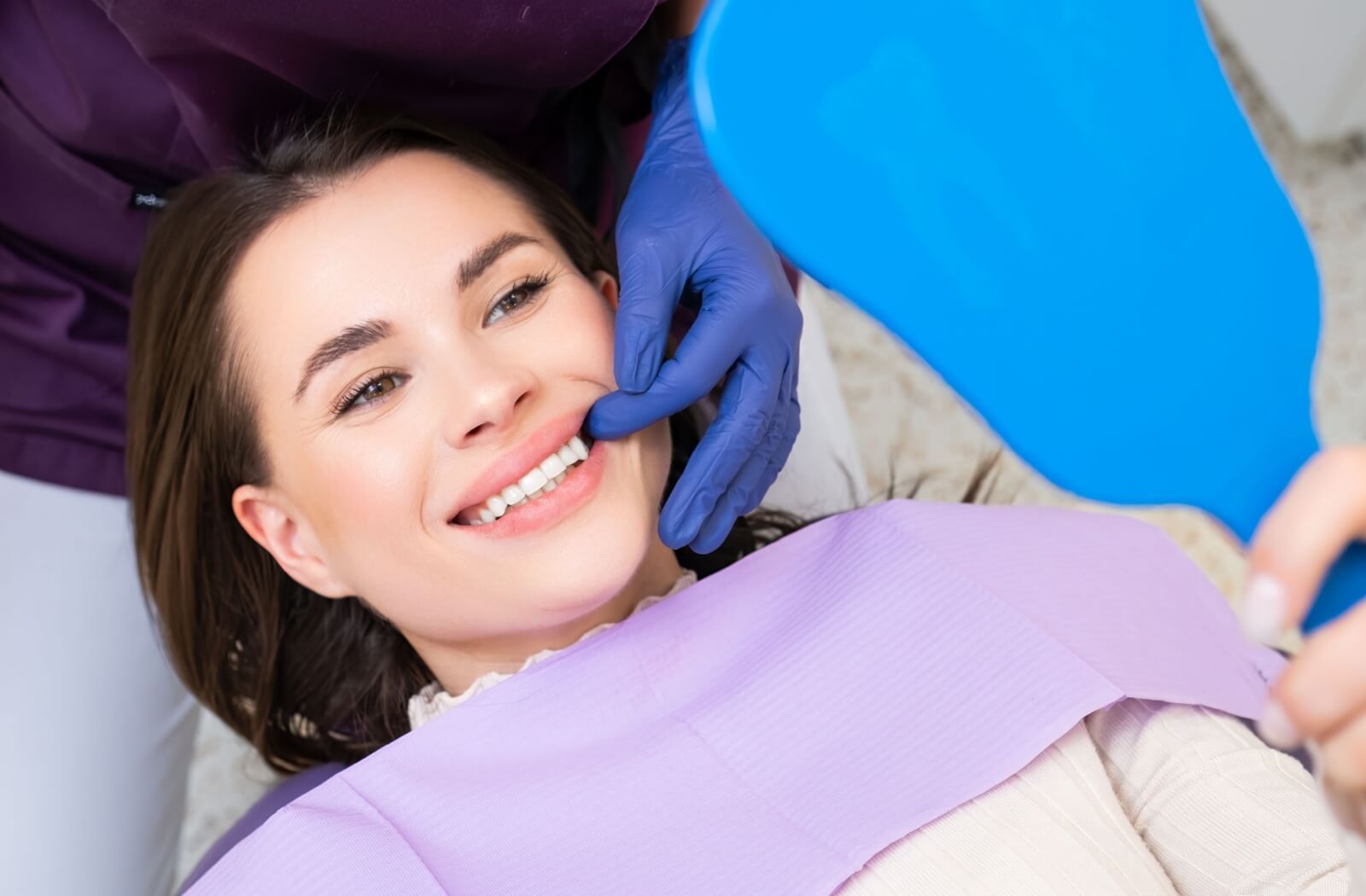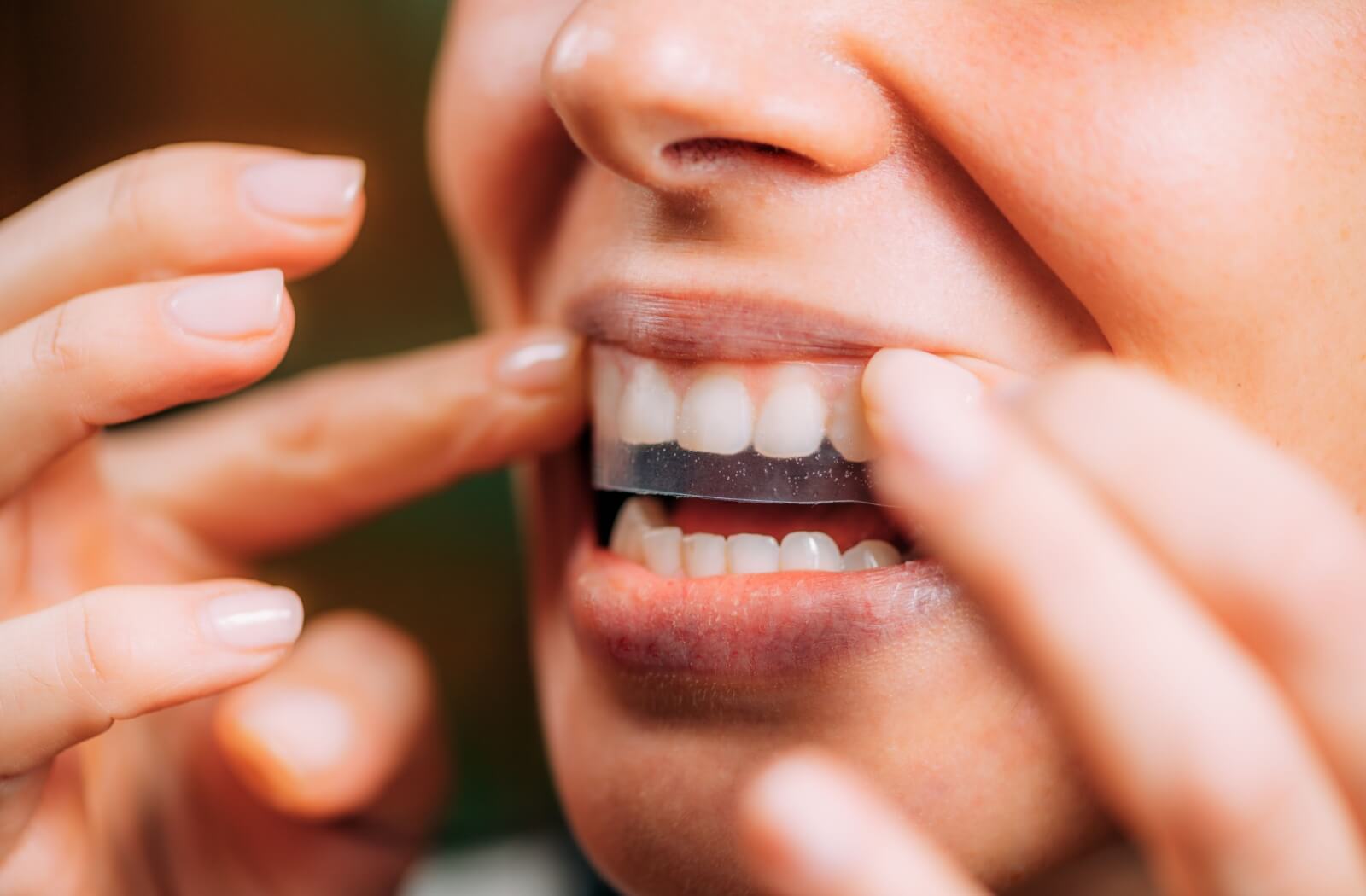
Since a bright, white smile is often associated with beauty and health, the quest for whiter teeth is nearly everywhere. But amidst this pursuit, a pressing question arises—does teeth whitening damage enamel? The short answer is no, as long as you follow the safety precautions and talk to your dentist before starting.
There are sometimes cases where teeth whitening isn't right for your teeth, so consulting a dentist will help you understand the safety of teeth whitening, how it works, and the best practices to ensure your smile shines without compromising your dental health.
How Teeth Whitening Works
Before we assess the safety of teeth whitening, it's essential to understand how it works. Your teeth are naturally an off-white shade due to the combination of enamel, which is partially transparent, and dentin, the inner layer that often has a yellow hue. Over time, these layers can become stained due to consuming staining foods and drinks like coffee, tea, and red wine. Tobacco use, age-related changes, and poor oral hygiene also contribute to tooth discoloration.
Teeth whitening involves applying bleaching agents, such as hydrogen peroxide or carbamide peroxide, to the teeth. These agents penetrate the enamel, oxidize the stains, break them into smaller pieces, and then dissolve them. The process lightens the dentin, making your teeth appear brighter than before.
Types of Teeth Whitening
When it comes to teeth whitening, there are several options available. It’s not a one-size-fits-all solution, and understanding the different methods can help you choose the best approach for your needs.
In-Office Whitening
At dental clinics like Wildwood Family & Cosmetic Dentistry, Zoom whitening treatments are a popular choice. This in-office procedure uses hydrogen peroxide and a special Zoom brand light to penetrate enamel and accelerate the bleaching process. The professional setting ensures safety and effectiveness, with long-lasting results.
At-Home Whitening Kits

For those who prefer to whiten in the comfort of their home, various take-home options are available. These include:
- At-home whitening strips: Convenient and easy to use, they offer noticeable results but might not last as long as professional treatments.
- Whitening toothpaste: These contain mild abrasives and may provide gradual results for surface stains.
- LED teeth whitening kits: These kits use an LED light to enhance the bleaching agent's effectiveness, offering a middle ground between home strips and professional treatments.
- Custom-fitted trays: Dentists can provide trays tailored to your teeth, allowing for more effective whitening at home.
While these at-home kits can offer temporary results, they often lack the long-term effectiveness and safety assurance of in-office treatments.
Is Teeth Whitening Safe?
Safety is a top concern for anyone considering teeth whitening. Fortunately, when performed by experienced dentists, in-office whitening is safe. The concentration of bleaching agents used is carefully controlled to ensure no harm comes to your enamel while effectively removing stains.
However, caution is advised when it comes to at-home kits. While these are generally safe, they can cause issues like tooth sensitivity, gum irritation, and overall discomfort if not used properly. If you notice any significant discomfort or irritation, stop using the product immediately and consult your dentist.
Benefits of a Professional Teeth Whitening Appointment
Choosing a professional teeth whitening appointment offers several benefits beyond just a brighter smile.
Long-Lasting Results
In-office treatments usually provide longer-lasting results compared to at-home kits. The higher concentration of bleaching agents used by dentists, combined with expert application, ensures a deeper and more enduring whitening effect.
Safety and Expertise
Dental professionals prioritize your safety during teeth whitening procedures. They take precautions to protect your gums and soft tissues, minimizing the risk of irritation or damage. Additionally, dentists can check for underlying dental issues that may be contributing to tooth discoloration.
Comprehensive Care
A dental appointment offers more than just whitening. Your dentist can provide advice on maintaining your bright smile, offer guidance on oral hygiene practices, and recommend personalized take-home kits that complement your in-office treatment.
How Long Does Teeth Whitening Last?
A common question many individuals have is the longevity of teeth whitening results. The durability of your brighter smile largely depends on factors like lifestyle habits and the method used.
In-Office Whitening
With professional treatments like Zoom whitening, you can expect results to last around 1 to 3 years, sometimes even longer. Regular dental check-ups, proper oral hygiene, and avoiding staining foods can extend the life of your whitening.
At-Home Kits
Results from at-home kits typically last a few months to a year, depending on the product used and adherence to recommended use. While these may require more frequent touch-ups, they can be a convenient choice for maintaining your smile between professional treatments.
Importance of Consultation
Teeth whitening, particularly when performed by professionals, is a safe and effective way to enhance your smile. By understanding the different methods available, the benefits of professional appointments, and the importance of safety, you can make informed decisions about your dental care. Always prioritize consultations with a qualified dentist to ensure the best results and maintain the health of your enamel.
Teeth Whitening
If you're considering teeth whitening, it's essential to consult with professionals like our team at Wildwood Family & Cosmetic Dentistry. Our experts can explain the process, address your concerns, and help you achieve the smile you've always wanted. Whether you're already a fan of teeth whitening or are exploring it for the first time, our team is here to guide you every step of the way.